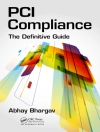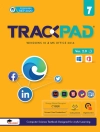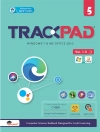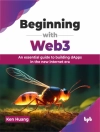Empower Your Data Insights with Java’s Top Tools and Frameworks.
Key Features
● Explore diverse techniques and algorithms for data analytics using Java.
● Learn through hands-on examples and practical applications in each chapter.
● Master essential tools and frameworks such as JFree Chart for data visualization and Deeplearning4j for deep learning.
Book Description
This book is a comprehensive guide to data analysis using Java. It starts with the fundamentals, covering the purpose of data analysis, different data types and structures, and how to pre-process datasets. It then introduces popular Java libraries like WEKA and Rapidminer for efficient data analysis.
The middle section of the book dives deeper into statistical techniques like descriptive analysis and random sampling, along with practical skills in working with relational databases (JDBC, SQL, My SQL) and No SQL databases. It also explores various analysis methods like regression, classification, and clustering, along with applications in business intelligence and time series prediction.
The final part of the book gives a brief overview of big data analysis with Java frameworks like Map Reduce, and introduces deep learning with the Deeplearning4J library. Whether you’re new to data analysis or want to improve your Java skills, this book offers a step-by-step approach with real-world examples to help you master data analysis using Java.
What you will learn
● Understand foundational principles and types of data analytics, including descriptive, diagnostic, predictive, and prescriptive analytics.
● Master techniques for preprocessing data, including cleaning and munging, to prepare it for analysis.
● Learn how to create various charts and plots including bar charts, histograms, and scatter plots for effective data visualization.
● Explore Java-based libraries such as WEKA and Deeplearning4j for implementing machine learning algorithms.
● Develop expertise in statistical techniques including hypothesis testing, regression (linear and polynomial), and probability distributions.
● Acquire practical skills in SQL querying and JDBC for relational databases.
● Explore applications in business intelligence and deep learning, including image recognition and natural language processing.
Table of Contents
1. Data Analytics Using Java
2. Datasets
3. Data Visualization
4. Java Machine Learning Libraries
5. Statistical Analysis
6. Relational Databases
7. Regression Analysis
8. Classification Analysis
9. Sentiment Analysis
10. Cluster Analysis
11. Working with No SQL Databases
12. Recommender Systems
13. Applications of Data Analysis
14. Big Data Analysis with Java
15. Deep Learning with Java
Index












